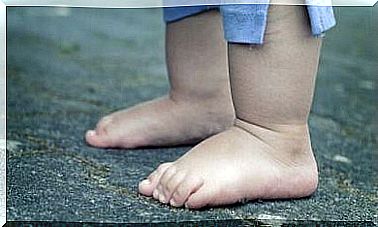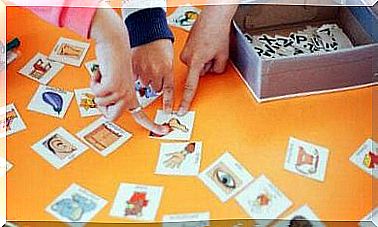8 Tips To Prevent Childhood Stress

In the face of the demands that today’s society places on children, it is important to take steps to prevent childhood stress. Schoolwork, living together at home and in school, and the pressure to adapt to today’s standards can cause this problem to explode in your children.
For this reason, one of the most important tasks of parents is to teach children how to behave assertively in the face of these situations and thus prevent childhood stress .
If you notice sudden changes in your child’s mood or behavior, your child may need special attention. Irritability, anxiety, and even physical discomfort with no apparent cause are signs of stress.
This condition also manifests itself in sleep loss, poor appetite, and lack of motivation. When faced with any of these symptoms, or as a means of prevention, we recommend that you practice the following strategies.
What needs to be done to prevent childhood stress?
1. Reduce speed and pressure in daily routines
Children who live on the edge of their time are never quiet children. Make sure that your children have enough time to prepare calmly before leaving home for school in the morning .
Starting the day with screaming, haste and forgetfulness is not the best way to start a relaxed day. From the previous evening, make sure everything is ready to start the next day.
2. Talk to them whenever you have the opportunity
It is vital that you are aware of whatever may be oppressing your children in their daily life. Ask them if everything is okay at school, make sure they are not bullied and always pay attention to the smallest signs.
Even if you cannot and should not try to solve all their problems, you can guide them to respond in the best way.

3. Control the amount of extracurricular activities to prevent childhood stress
A growing trend is to enroll children in a large number of artistic or sporting activities. And, while it is essential to cultivate an interest or a talent, it is equally important to give them the time to be children. Do everything you can so that the amount of responsibility and commitment does not become suffocating and harmful.
4. Be a role model for assertive behavior
As we have said on numerous occasions, the best teacher is the example. So, if you want your children to learn to react healthily to situations that challenge them, you need to start doing it yourself. Take advantage of the difficulties to offer them a more open and optimistic point of view from which to face problems.
Other recommendations against childhood stress
5. Teach them proper sleep habits
Babies who get enough sleep and get good quality rest are less likely to suffer from childhood stress. In addition, they are ready to process the information they receive at school.
6. Limit the use of technology
Children who spend many hours in front of a screen are more likely to suffer from stress. Invite them to do different outdoor activities and keep them away from the TV and phone for a while. Nothing is more relaxing than quality family time.
7. Teach them some breathing techniques
It is never too early to start practicing yoga or engaging in mindfulness , especially if you want to prevent childhood stress. On the contrary, these activities can help your children achieve a state of tranquility. You can start by teaching them something as simple as deep breathing to balance emotions.

8. Engage in physical activity with them
Stress makes muscles tense, not just in adults. Children also need to channel their energies in a healthy way that brings harmony between their bodies and minds. It is enough to walk in the fresh air for a few minutes, take a bike ride or play ball.
It is vital to identify the abrupt changes that can manifest in your children’s behavior. If you notice that their conduct suddenly goes out of normal parameters, from its usual manifestations, do not hesitate and contact a professional. School counselors and psychologists can support your family in solving these problems.









